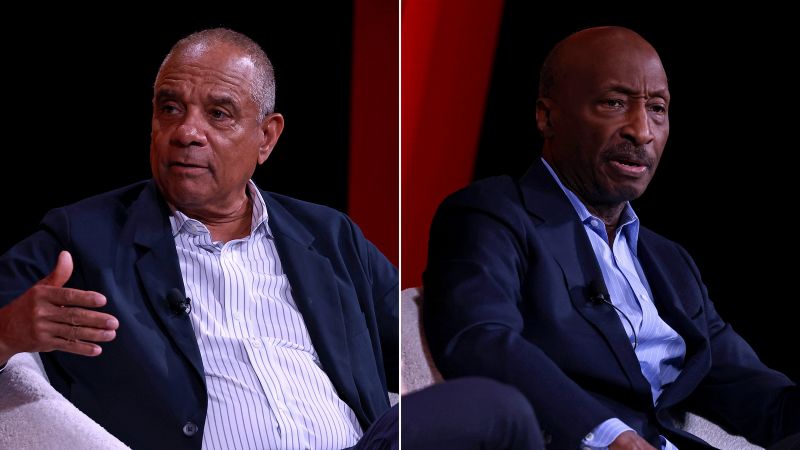Ken Frazier and Ken Chenault, two Black CEOs who have made significant strides in Corporate America, emphasize the importance of diversity, equity, and inclusion (DEI) initiatives in creating equal opportunities for individuals facing disadvantages due to factors such as race, upbringing, and education. Frazier, who became the first Black CEO of a major pharmaceutical company, and Chenault, the third Black CEO of a Fortune 500 company, co-founded OneTen, an organization aiming to create one million careers for individuals without a four-year college degree. They stress that DEI strategies are crucial for identifying and developing talent that may have been overlooked due to discrimination and historical biases around race.
Despite the benefits of DEI programs in boosting profits, reducing employee attrition, and increasing motivation, there has been opposition to these initiatives, with some labeling it as “reverse racism”. Frazier and Chenault argue that the concept of meritocracy has historical roots in discrimination and privilege, and by actively promoting diversity and inclusion, companies can tap into a broader pool of talent and foster a more inclusive workplace culture. They acknowledge that not all DEI programs are effective but caution against dismissing entire initiatives based on isolated examples.
The surge in DEI efforts following the racial justice protests in 2020 has been met with pushback from conservative groups, politicians, and legal challenges. Some companies, fearful of backlash or legal repercussions, have begun to retreat from their diversity initiatives. This trend is further exacerbated by recent Supreme Court rulings and political pressure against companies that prioritize racial equity. Frazier and Chenault note the importance of distinguishing between companies that have integrated DEI into their core business practices and those that merely responded to societal pressure without a genuine commitment to diversity and inclusion.
The shift in political climate and the rise of opposition to DEI programs highlight the challenges faced by companies in maintaining a steadfast commitment to diversity and inclusion. Legal pressures, lawsuits, and targeted campaigns against brands supporting diversity initiatives have created a tumultuous landscape for DEI efforts. Frazier and Chenault stress that companies need to embed diversity, equity, and inclusion into their organizational structure rather than treating it as a trend or response to external pressures, in order to navigate the changing dynamics of the current environment.
Amidst these challenges, Frazier and Chenault advocate for a nuanced approach to diversity and inclusion, recognizing the complexities and nuances involved in promoting racial equity and fairness. They emphasize the importance of developing talent and recognizing hidden potential, especially among individuals who have faced discrimination and bias based on America’s historical context around race. By embracing diversity strategies that go beyond surface-level representation, companies can create a more inclusive and innovative work environment that values and uplifts individuals from diverse backgrounds. Ultimately, Frazier and Chenault believe that a commitment to diversity and inclusion is not only a moral imperative but also a strategic advantage for businesses aiming to thrive in a diverse and competitive global market.


